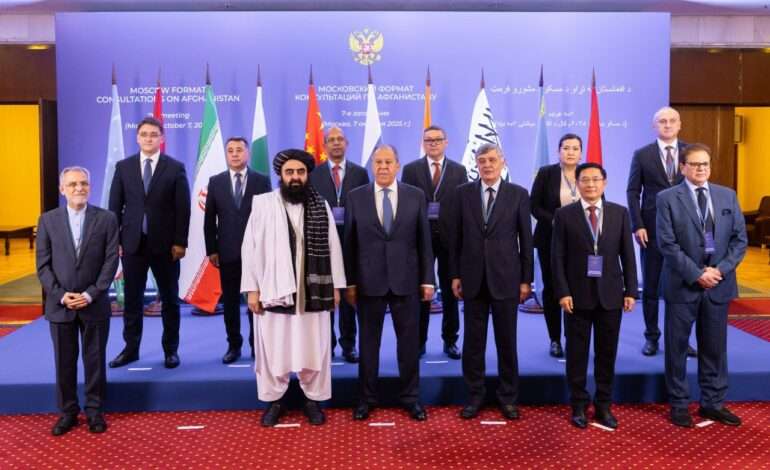
India reaffirms support for a peaceful and stable Afghanistan at Moscow Format meeting
India on Tuesday reiterated its long-standing position that a secure, peaceful, and stable Afghanistan is essential not only for the well-being of its people but also for regional resilience and global security.
The message was conveyed during the 7th meeting of the Moscow Format Consultations on Afghanistan, attended by special representatives and senior officials from Afghanistan, India, Iran, Kazakhstan, China, Kyrgyzstan, Pakistan, Russia, Tajikistan, and Uzbekistan, with Belarus participating as a guest.
Led by Ambassador Vinay Kumar, the Indian delegation reaffirmed India’s civilizational and strategic commitment to Afghanistan’s peace and prosperity. “India supports an independent, peaceful, and stable Afghanistan and the socioeconomic development of its people,” the Indian Embassy in Moscow said in a statement on X.
For the first time, an Afghan delegation led by Foreign Minister Amir Khan Mottaqi joined the meeting as a member. In the joint statement issued afterward, the participants emphasized their collective support for Afghanistan’s sovereignty and unity, opposing any foreign military presence in Afghanistan or its neighboring countries.
The group called on nations “mainly responsible” for Afghanistan’s current crisis to fulfill their commitments toward its economic recovery. They urged regional cooperation to strengthen trade, investment, and infrastructure development while enhancing humanitarian aid, healthcare, agriculture, and poverty alleviation efforts.
The meeting also underscored the urgency of counterterrorism cooperation, stressing that Afghan soil must not be used to threaten regional or global security. Participants reaffirmed their commitment to assist Afghanistan in eliminating terrorism and promoting stability.
India’s participation reflects its consistent approach — advocating inclusive governance, regional connectivity, and the protection of Afghan interests as central to long-term peace in South and Central Asia.